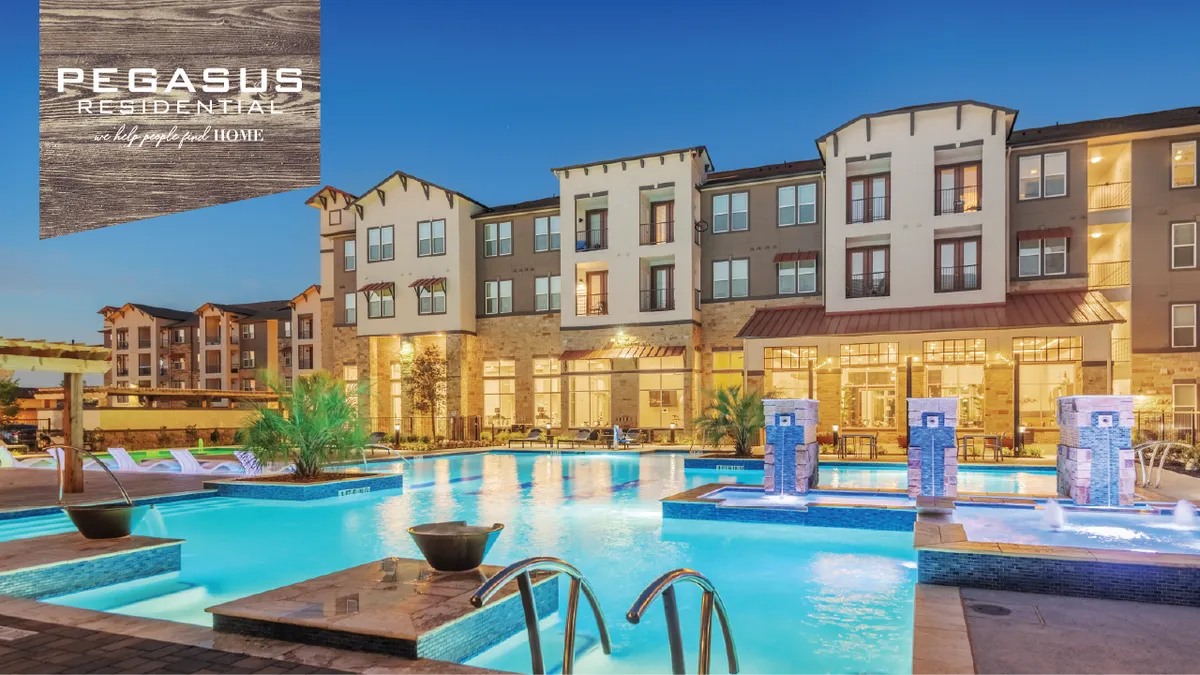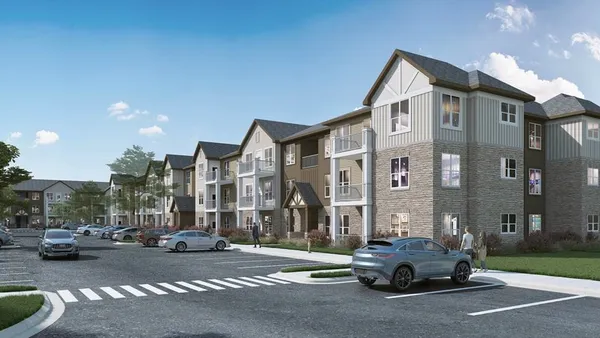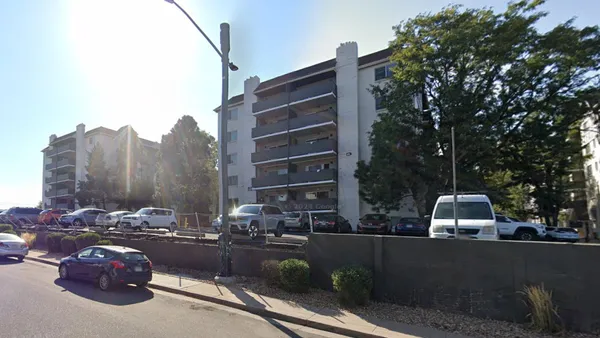Yakov Belousov sees one big issue trumping everything else in apartment management – staffing.
"We're going to have to fundamentally rethink how we're staffing up properties and what the expectation is of our teams," said Belousov, executive director of operations for Alpharetta, Georgia-based property manager Pegasus Residential.
Pegasus is testing three staffing models – a five-day workweek, a four-day workweek and a centralized staffing platform – at its communities in an attempt to right-size operations for the future and move its employees away from working on weekends. In each case, the company is leveraging self-guided tours and virtual interactions. In the centralized model, it is moving the office and administrative responsibilities offsite.
Although many apartment companies are reevaluating what their leasing offices look like, Belousov thinks regional and field support teams will also need to be addressed.
Here, Belousov talks with Multifamily Dive about how Pegasus, the No. 41 manager on the National Multifamily Housing Council Top 50, is thinking about removing managers and assistant managers, closing for the weekends and centralizing maintenance functions.
This interview has been edited for brevity and clarity.
MULTIFAMILY DIVE: What is driving the reevaluation of staffing in the industry?
YAKOV BELOUSOV: Everyone is looking for a work-life balance. They want more time with their family and with their loved ones. They don't want to be married to the job. The generation that's coming is conditioned very differently from the previous generations. The big thing that we're going to have to fix is the archaic staffing structure that we've had for years. So we're going to partner with technology and use the self-serve economy model that has been very prevalent since March 2020.
What does the centralized model look like? What tasks are you centralizing?
We've removed the assistant manager position and centralized that and removed the property manager and centralized that. The centralized folks can support multiple properties. The folks that we have on site are managing relationships for current residents and prospects and reenvisioning how we interact with our prospects, the community that we build and the programs that we have. It's almost like our sales associates have become social engagement folks.
From a maintenance perspective, we've created a hub-and-spoke system where a maintenance person is dedicated to the property, but everyone else is centralized. They support many properties, and the director of maintenance will take a look and see where the needs are.
If you're a third-party manager, are you at a competitive disadvantage if you're resistant to these trends?
We're going as a society toward a self-serve economy. So I don't think this is going away. I think the people that are resistant will be the last to join, but it is going to happen.
How are clients reacting to this direction?
Because we are a third-party manager, we have to make sure our clients are on board with this. So our goal for clients that might be apprehensive is to start with a five-day workweek. We have case studies that show you are not losing any revenue, you are not missing out on leases, your occupancy is not dipping and your rent growth is exactly where it was before. Just because you're closing on the weekend, it's not hurting your business.
When making these changes, what kinds of concerns do employees have? How do you manage these?
Absolutely. There are still concerns out there. Because of the amount of supply entering the marketplace and the deficiency in staffing, it hasn't been a significant concern. The demand for jobs is so high that we don't have enough staffing to fill them. Eventually, I think it's going to be an even greater concern. But like with anything else, people will have to repurpose some of their abilities and move in that direction.
Click here to sign up to receive multifamily and apartment news like this article in your inbox every weekday.











